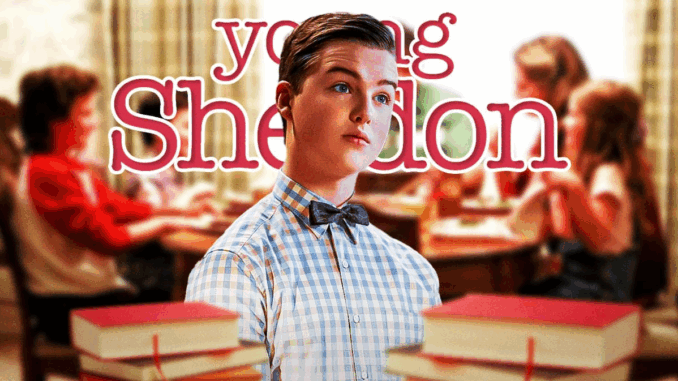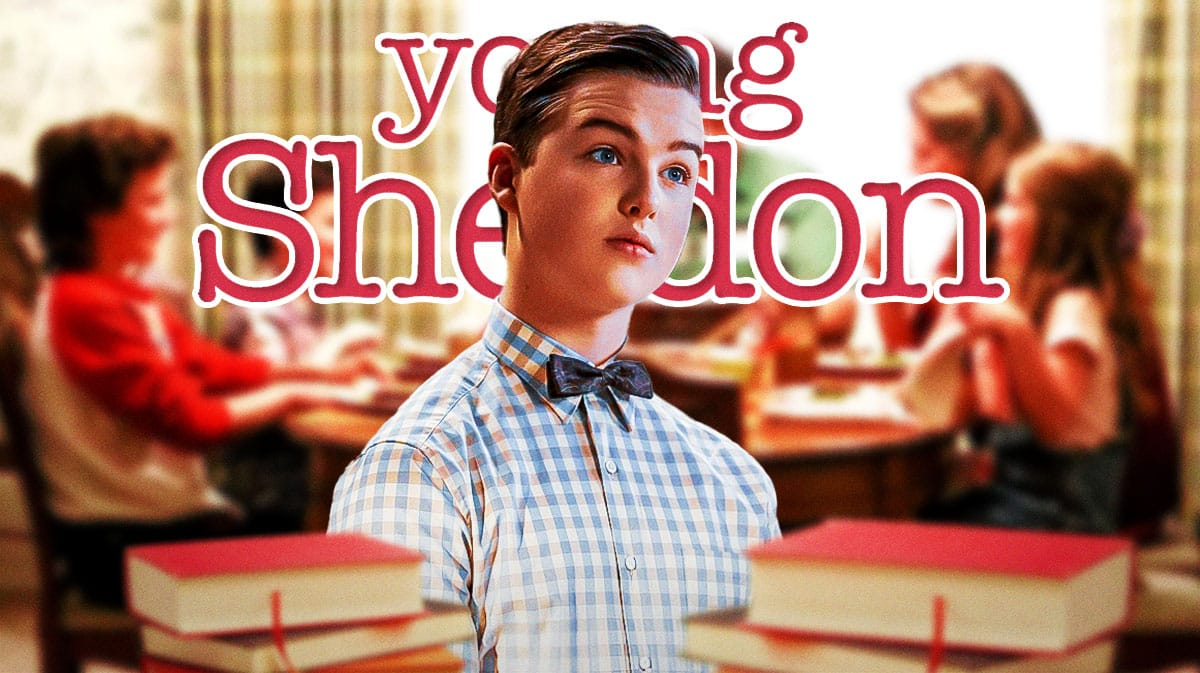
At its start, Young Sheldon was supposed to be a fun origin story about a socially awkward genius growing up in Texas. But over time, it shifted—until the series finale quietly restored that original premise in a surprisingly meaningful way. After years of detours, the show tapped back into the emotional core it once ignored. Let’s dive into how the finale brought everything full circle.
The Show’s Premise That Faded Away
From Genius Kid to Family Ensemble
Initially pitched as a window into young Sheldon Cooper’s alien world, the show soon evolved into a broader look at the entire Cooper family. Sheldon became background noise to Mary, Meemaw, Georgie, and Missy—who eventually stole the spotlight.
This pivot broadened storytelling but left the original premise—Sheldon’s social isolation and genius—underexplored.Reddit+15Screen Rant+15Reddit+15
The Finale That Rekindled the Forgotten Core
Sheldon’s Struggles Reborn in a Memoir
In the episode “Memoir,” adult Sheldon (Jim Parsons) is revealed to have been narrating all along as he writes a memoir. This device re-centers the narrative on his childhood and isolation—restoring the show’s intended focus in one elegant move. News.com.au+3parade.com+3Medium+3
George’s Funeral and Sheldon’s Realizations
The penultimate episode, titled “Funeral,” forces Sheldon to confront his father’s death and lingering regrets. Through grief and reflection, he’s reminded of his social alienation and emotional blind spots—tiny glimpses of the original lonely genius storyline returning. EW.comScreen Rant

Family Still Matters—But Sheldon Is Back at the Center
Ensemble vs. Origin Story
While the final season balanced family arcs well, it was clear that Sheldon’s narrative held the emotional gravity. By focusing the finale on his farewell to childhood and entrance into Caltech, the show recaptured its initial structure.thewrap.com+13Screen Rant+13itsprime.media+13
Why This Return Worked Emotionally
The Lost Genius Finally Gets Heard
Sheldon’s earlier seasons lacked dramatic weight in his own storyline. By the finale, portraying his regret, social awkwardness, and desire to understand his father made viewers empathize with the character they’ve known since The Big Bang Theory.
The Memoir as a Narrative Magic
Making Sheldon the memoirist explains the entire storytelling structure retroactively—transforming his voice-over into a purposeful act of remembrance. parade.comMedium
Caltech Ending—Symbolic and Perfectly Timed
Step Into Adulthood, Step Out of The Past
The finale ends with Sheldon walking onto Caltech’s campus—metaphorically leaving childhood behind and embracing his future. This visually echoes where Big Bang Theory begins and honors the original prequel promise.itsprime.mediaCBR
Cameos That Didn’t Overshadow the Core
Jim Parsons & Mayim Bialik’s Return
Parsons and Bialik reprise their roles as Sheldon and Amy—but only in carefully balanced scenes that highlight the memoir without distracting from the Cooper family’s journey. It’s a nod to fans, not a takeover.glamour.com+11EW.com+11People.com+11
The Show That Finally Found Its Tone
From Sitcom Gags to Emotional Resonance
Earlier seasons leaned heavily on laugh tracks and quirky awkwardness. The finale dared to be quiet, somber, and reflective—letting grief and memory carry weight. It was a tonal shift the series needed. CBRparade.com
Fans React—Some What They Wanted, Some What They Didn’t
Love for Death Episode, Disappointment in Rushed Goodbye
Season 7 Episode 13 (“Funeral”) earned praise for emotional depth, while Episode 14 (“Memoir”) drew criticism for feeling rushed and skipping closure—especially without farewells from Missy, Meemaw, or Georgie.Reddit+5Reddit+5Screen Rant+5
Many fans felt the final montage was abrupt—longing for a family goodbye to really seal the ending. Reddit+1
Why It All Rings True at the End
| Element | Why It Resonates |
|---|---|
| Memoir framing | Explains narrative voice and structure |
| Emotional closure | Confronts grief, regret, and growth |
| Future glimpse | Links to Big Bang Theory legacy |
| Core premise returned | Sheldon’s isolation and genius acknowledged |
Conclusion
Young Sheldon may have wandered far from its original premise during its run, but its finale cleverly and emotionally brought it back to center. By framing the entire show as Sheldon’s memoir and anchoring the climax in grief and realization, the prequel finally embraced the loneliness and longing that made its premise compelling. Sometimes you have to forget your roots to find your way back to them—Young Sheldon did just that in its final hour.
FAQs
Q1: What original premise did Young Sheldon abandon?
The story of socially-isolated child genius navigating the world. It later became more ensemble-focused.
Q2: How did the finale fix the premise?
By framing the show as Sheldon’s memoir and centering key emotional beats on his social and emotional growth.
Q3: Did adult Sheldon actually appear in the finale?
Yes—Jim Parsons appears as adult Sheldon writing a memoir, confirming that narrations were his own reflections.People.comNo Context Culture
Q4: Why did the finale feel rushed to some fans?
The reduced final season meant fewer episodes to tie up arcs, leading to abrupt transitions and minimal farewells.Screen RantReddit
Q5: Is the Big Bang Theory timeline honored in the finale?
Yes—the ending shows Sheldon going to Caltech and includes Easter eggs tying into TBBT, making it a narrative bridge.